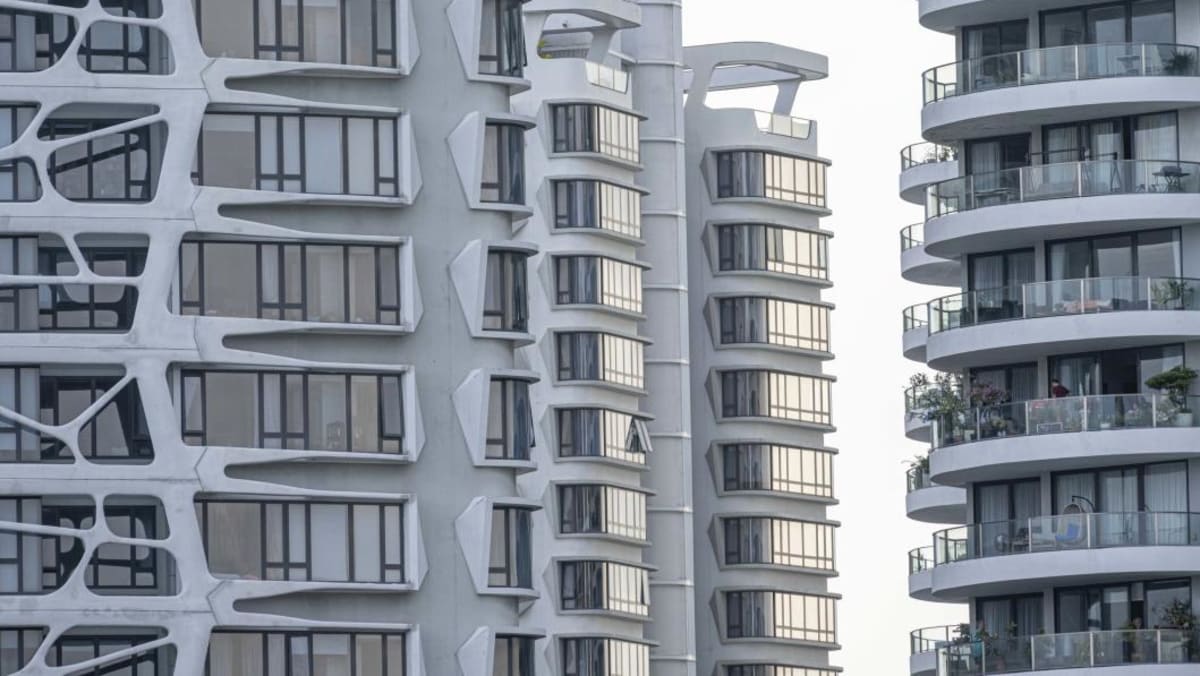SINGAPORE: The latest hikes in additional buyer’s stamp duty (ABSD) for foreigners buying any residential property in Singapore, as well as for Singaporeans buying their second and subsequent houses, seem perplexing given sluggish macroeconomic conditions.
This round of cooling measures, announced late Wednesday (Apr 26) night, came on the same day the Monetary Authority of Singapore (MAS) macroeconomic review stated that global growth will slow over 2023, as monetary policy tightening by central banks worldwide takes full effect.
In recent months, several Western banks have gone under and major investment houses are cautioning about an impending market crash and a recession. Given the headwinds expected by the investment market, interbank rates and the spreads heaped on borrowers will likely remain at today’s levels or trend upwards.
If, as MAS highlighted, banks start to tighten and are less willing to lend in view of market risks, then we may expect home loan rates in Singapore to remain above 3.5 per cent per annum for a longer time.
HOME BUYERS AND INVESTORS ARE ALREADY HOLDING BACK
Higher mortgage rates have already caused home buyers to hold back. Developers’ sales have been weak for the last half year, unable to sell at the long-term average of about 800 to 1,000 units per month. Early signs of distress amongst property owners are showing as more properties are being foreclosed and put up for auction.
We should also consider the increase in property taxes and high inflation rates etching away the rental returns of property investments. The increasing uncertainty in the jobs market as a result of downsizing by major corporations could also put pressure on occupancy rates.
In the immediate term, foreign investors might give the residential market a miss and channel their funds to the office, retail and industrial segments even though rental returns at 2 to 4 per cent per annum are lower than commercial loan interest rates of 5 per cent or more.
Related:
Singapore announces new property cooling measures, additional buyer's stamp duty doubled to 60% for foreigners
New cooling measures a pre-emptive move to dampen investment demand for residential properties: Desmond Lee
Latest property cooling measures unlikely to ease prices by much: Analysts
Perhaps the message to Singapore citizens is that the government is listening and actively responding to gripes about housing affordability. Minister for National Development Desmond Lee said the increases in ABSD are a “pre-emptive measure” to dampen local and foreign investor demand, while prioritising Singaporeans who are buying homes to live in.
The previous rounds of cooling measures were rather recent, 17 months ago in December 2021 and seven months ago in September 2022. From a financial investment point of view, the raising of foreign buyers’ ABSD from 20 per cent to 30 per cent in December 2021 sounded steep. But somehow, that did not cool the market.
Viewed from the same lens, it is difficult to imagine much interest from foreign investors after the new ABSD hike to 60 per cent. But for wealthy investors who do not care for financial returns, will the concept of ABSD work or will they act quickly to purchase more apartments just in case ABSD is raised further?
Listen:
Related:
Commentary: Property cooling measures may cause knee-jerk reaction, but intervention was necessary
Commentary: Taxing the wealthy makes sense when there is little room for higher income tax or GST
HOUSING AFFORDABILITY STILL A CONCERN
Whether the additional taxes will cool the market is uncertain. Property players have already posted on social media urging investors to quickly purchase residential properties, before ABSD rates are adjusted even higher in future.
It is worth noting that the April cooling measures did not address one major pain point for the residential segment: Persistently high rents, which affect not only people who have called Singapore home for years, but Singaporeans waiting for their new homes to be completed.
But in a response to the media, Mr Lee said he does not see the latest ABSD adjustments having much spillover impact on rental markets.
He cited the expected increase in supply for residential properties that is expected to cool down demand as some renters are expected to exit the rental markets to purchase their own property.
The MAS macroeconomic review on Wednesday said home rental pressures may ease in the coming months as a significant supply of new housing units – almost 40,000 – will be completed across public and private housing markets in 2023.
But until high rents are tamed, foreigners and Singaporeans alike will be griping about housing affordability and the lack of options. How the situation will unfold in a fragile economic environment would be interesting to observe.
Ku Swee Yong is a director of real estate consulting firm International Property Advisor Pte Ltd and a researcher with the Singapore University of Social Sciences focused on autonomous vehicles and urban planning.









